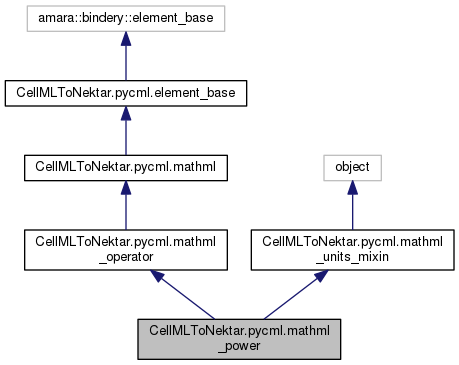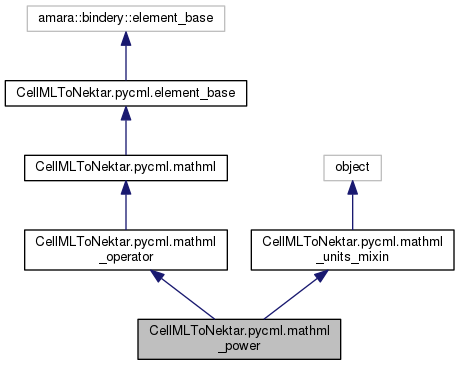|
Nektar++
|
All Classes Namespaces Files Functions Variables Typedefs Enumerations Enumerator Properties Friends Macros Pages
|
Nektar++
|


Public Member Functions | |
| def | evaluate |
 Public Member Functions inherited from CellMLToNektar.pycml.mathml_operator Public Member Functions inherited from CellMLToNektar.pycml.mathml_operator | |
| def | wrong_number_of_operands |
 Public Member Functions inherited from CellMLToNektar.pycml.mathml Public Member Functions inherited from CellMLToNektar.pycml.mathml | |
| def | __init__ |
| def | __repr__ |
| def | __deepcopy__ |
| def | clone_self |
| def | get_original_of_clone |
| def | get_component |
| def | model |
| def | eval |
 Public Member Functions inherited from CellMLToNektar.pycml.element_base Public Member Functions inherited from CellMLToNektar.pycml.element_base | |
| def | __init__ |
| def | __delattr__ |
| def | __setattr__ |
| def | rootNode |
| def | cmeta_id |
| def | xml_remove_child_at |
| def | xml_doc |
| def | xml_properties |
Private Member Functions | |
| def | _set_in_units |
| def | _reduce |
Additional Inherited Members | |
 Static Public Member Functions inherited from CellMLToNektar.pycml.mathml Static Public Member Functions inherited from CellMLToNektar.pycml.mathml | |
| def | clone |
 Public Attributes inherited from CellMLToNektar.pycml.element_base Public Attributes inherited from CellMLToNektar.pycml.element_base | |
| xml_attributes | |
 Properties inherited from CellMLToNektar.pycml.mathml Properties inherited from CellMLToNektar.pycml.mathml | |
| component = property(get_component) | |
|
private |
Reduce this expression by evaluating its static parts. If the whole expression is static, proceed as normal for an <apply>. Otherwise check if the exponent is static and the expression being exponentiated is a <ci>. If so, and the exponent is equal to 2, 3, or 4, convert the expression to a multiplication.
Definition at line 5728 of file pycml.py.
References CellMLToNektar.pycml.mathml.eval().
|
private |
Set the units of the application of this operator. Set the exponent to have units of dimensionless, and the operand to have an arbitrary member of its possible units set. Where these mean the <apply> doesn't have the given units, wrap it in suitable units conversion mathematics.
Definition at line 5694 of file pycml.py.
References CellMLToNektar.pycml.mathml_units_mixin._set_element_in_units().
| def CellMLToNektar.pycml.mathml_power.evaluate | ( | self | ) |
Return the first operand to the power of the second.
Definition at line 5720 of file pycml.py.
References CellMLToNektar.pycml.mathml.eval(), and CellMLToNektar.pycml.mathml_operator.wrong_number_of_operands().
Referenced by CellMLToNektar.pycml.mathml_constructor._eval_self().
 1.8.8
1.8.8